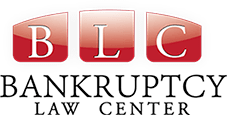 People get into financial trouble for a variety of reasons, many of which have nothing to do with overspending or the misuse of credit. Issues such as medical emergencies, the loss of a job, poorly performing investments, or simple financial errors can leave people unable to manage their debts and in danger of losing their homes, cars, or other important assets that they finance or lease. Fortunately for debtors, in many cases, filing for Chapter 7 bankruptcy can help. However, it is important to understand the basics regarding this type of bankruptcy before moving forward with filing.
People get into financial trouble for a variety of reasons, many of which have nothing to do with overspending or the misuse of credit. Issues such as medical emergencies, the loss of a job, poorly performing investments, or simple financial errors can leave people unable to manage their debts and in danger of losing their homes, cars, or other important assets that they finance or lease. Fortunately for debtors, in many cases, filing for Chapter 7 bankruptcy can help. However, it is important to understand the basics regarding this type of bankruptcy before moving forward with filing.
What is Chapter 7 Bankruptcy?
Chapter 7 bankruptcy is a type of bankruptcy authorized by federal law through which a debtor’s non-exempt assets are liquidated and the proceeds are used to pay off creditors. Many, if not all, remaining debts are discharged after a Chapter 7 bankruptcy, meaning that the individual who filed for bankruptcy is no longer under any legal obligation to pay the debts back.
What Kinds of Debts can be Eliminated in Chapter 7 Bankruptcy?
Some of the more common types of debts that are eliminated in Chapter 7 bankruptcy include the following:
|
|
Importantly, there are a few categories of debts that are normally not eliminated in Chapter 7 bankruptcy, such as student loans or past-due child support. In some cases, however, debts that are usually nondischargeable may be discharged, so it is important to speak with an attorney regarding your specific situation.
Do People Who File for Chapter 7 Bankruptcy Lose All of Their Assets?
A common misconception that many people have regarding Chapter 7 bankruptcy is that people who file are left penniless and are forced to sell all of their assets. In reality, the bankruptcy code provides filers with generous exemptions that allow many filers to keep most, if not all, of their assets. Some of the more commonly utilized exemptions include those for a filer’s home, vehicle, work tools, personal property, retirement accounts and pensions, insurance policies, and wages, and others.
Do I Need an Attorney to File for Chapter 7 Bankruptcy?
There is no rule that requires people who file for bankruptcy to do so with the assistance of an attorney, but it is recommended to do for a number of reasons. Bankruptcy law can be very complicated, and there are many different types of bankruptcy that a person may be able to file. Determining which form of bankruptcy will most benefit you can be difficult, and an attorney will thoroughly review your situation and advise you as to how he or she thinks you should proceed. In addition, filing for bankruptcy requires submitting a tremendous amount of paperwork to the court, and any errors or omissions could significantly delay your case or even result in the denial of a discharge. The assistance of a lawyer will ensure that your filing is accurate, complete, and that your case goes as smoothly as possible.
Contact a San Diego Bankruptcy Lawyer for Assistance
If you are having difficulty meeting your financial obligations, you should talk to an attorney to determine whether bankruptcy may be able to help you. To schedule a consultation with one of our dedicated San Diego bankruptcy attorneys, call The BLC Law Center today.
[/fusion_text][/fusion_builder_column][/fusion_builder_row][/fusion_builder_container]




